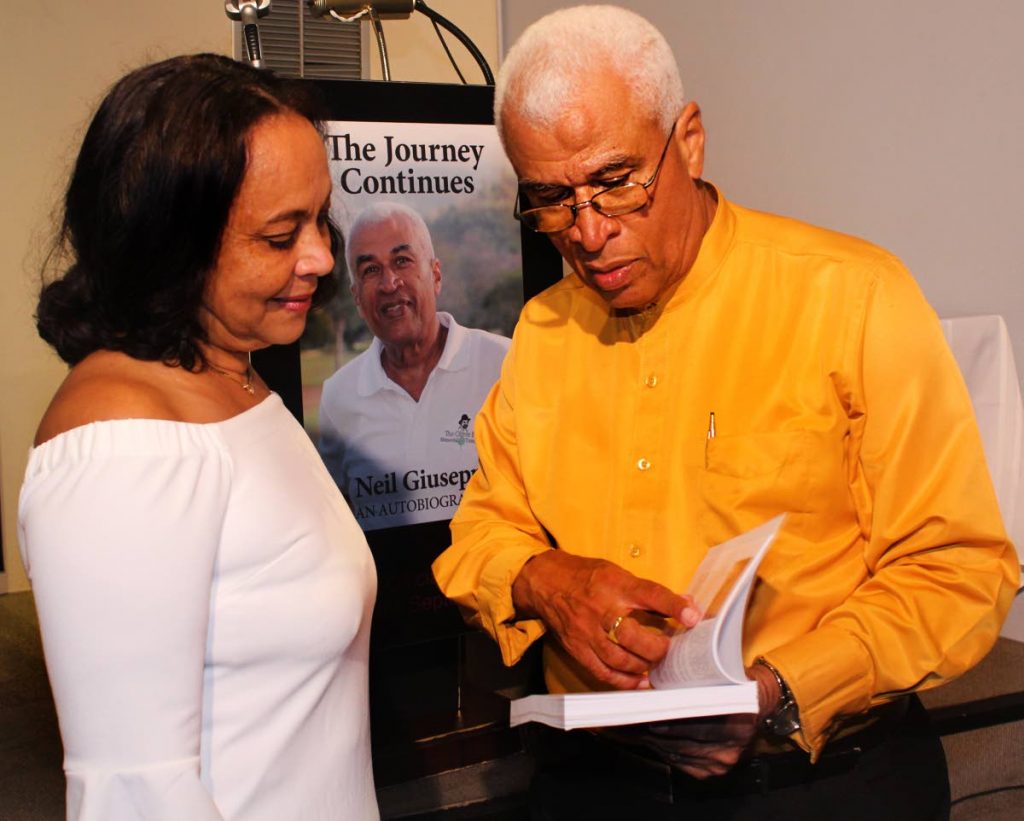Giuseppi sheds a tear for media

Veteran broadcaster Neil Giuseppi has lamented what he considers to be declining standards in the media.
And he believes the focus is no longer on producing quality work but maximising profits.
“I really don’t know why I bother because apparently, it is a lost cause. One of the major problems is the fact that the emphasis is no longer on standards but merely on the pursuit of the Almighty dollar,” Giuseppi wrote in his new book, The Journey Continues, which was launched on Friday at the National Library, Port-of-Spain.
Excepts of the book were read by criminologist Renee Cummings, comedian/cultural activist Errol Fabien and Giuseppi’s close friend Valerie Laurent-Thomas, daughter of late educator Eugene Laurent, one of his mentors.
Cummings read for the audience Giuseppi’s observations in the book about the breakdown in journalistic standards.
Giuseppi wondered if media practitioners, particularly those on radio and television, were being called upon by their managers to answer for mistakes made on air.
“I wonder also if proof readers exist today in the print media,” he said, adding that correct pronunciation of words also appeared to be a thing of the past.
Cummings elicited chuckles from the audience when she read Giuseppi’s comments about a newspaper headline, Man Dies After Committing Suicide.
He said another newspaper, reporting on the same suicide, told its readers “the dead man was seen walking down the road a few moments before he committed suicide.”
Giuseppi also wrote that a newspaper ran a sentence in a story which read, “Homicide victims rarely talk to the police,” while another said, “the body that was found on the Beetham Highway caused the police to work on the theory that the man was alive at the time he died.”
Giuseppi bemoaned the fact that media managers do not appear to care about such blunders.
“But that is what has become of the media today.”
He said, however, that while contemporary media appears to have “deteriorated into mediocrity or worse,” some of the “unforgivable errors” are not limited to the present era.
Giuseppi recalled that an announcer, during his years at Trinidad & Tobago Television in the 1970s, conducted a live interview with famous jazz musician Dave Brubeck, in which he asked, “How many members are there in your quartet?”
Giuseppi also recalled calling the chief executive officer of a radio station after hearing an announcer refer to someone as vomit.
“I asked her why the particular announcer was allowed to use that type of language on air. Her response to me was that he (announcer) was making money for the station and the public loved it and, therefore, as far as she was concerned it was acceptable. I hung up the phone and wept a tear,” he wrote.
In the book, Giuseppi also spoke candidly about his prostate cancer scare, distaste for politics and love of golf.


Comments
"Giuseppi sheds a tear for media"